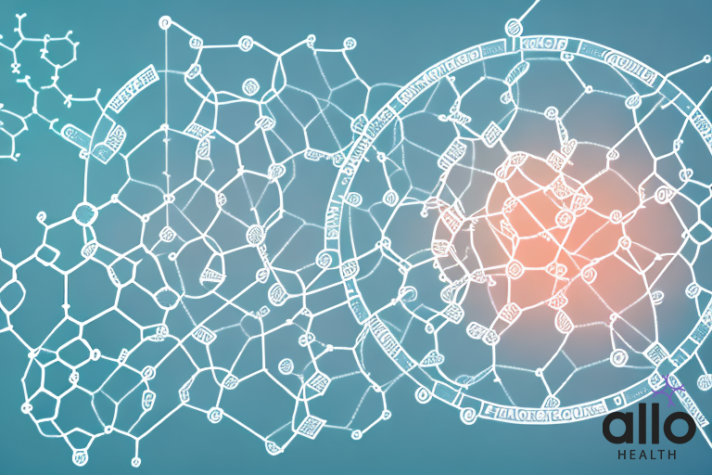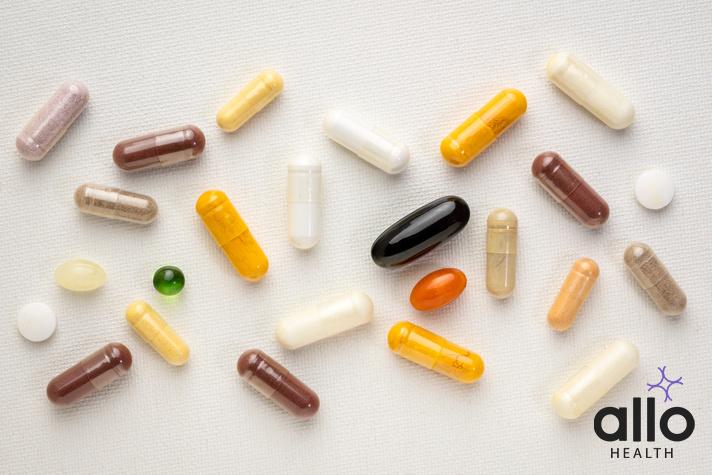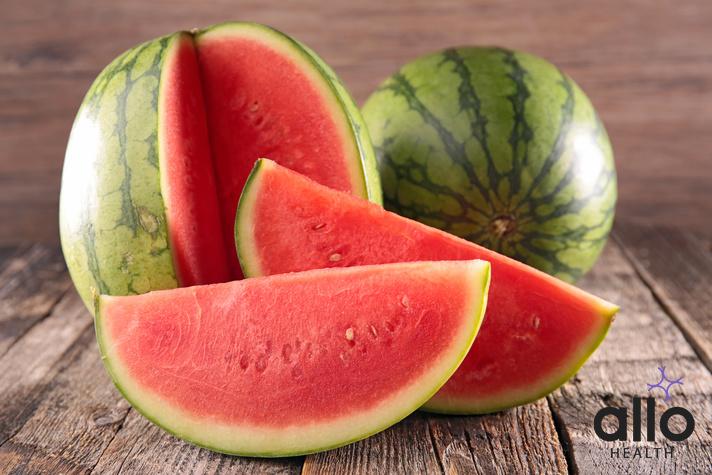Using L Arginine and L Citrulline to Treat Erectile Dysfunction

Allo Health is dedicated to personalized well-being, offering support and trusted information tailored to individual health goals. The platform emphasizes human-generated content, led by a distinguished medical team of experts, including physicians and sexual health specialists. Their commitment to credibility involves rigorous fact-checking, authoritative research, and continuous updates to ensure accurate, up-to-date information. Allo Health's unique approach goes beyond conventional platforms, providing expert-led insights and a continuous commitment to excellence, with user feedback playing a crucial role in shaping the platform's authoritative voice.

Dr.Sushma.V completed MBBS degree from BGS GIMS,bangalore
Why This Was Upated?
Our experts continually monitor the health and wellness space, and we update our articles when new information became available.
Updated on 03 June, 2024
- Article was updated as part of our commitment to diversity, equity, and inclusion.

"The following blog article provides general information and insights on various topics. However, it is important to note that the information presented is not intended as professional advice in any specific field or area. The content of this blog is for general educational and informational purposes only.
Book consultation
The content should not be interpreted as endorsement, recommendation, or guarantee of any product, service, or information mentioned. Readers are solely responsible for the decisions and actions they take based on the information provided in this blog. It is essential to exercise individual judgment, critical thinking, and personal responsibility when applying or implementing any information or suggestions discussed in the blog."
People who want to improve their sexual well-being frequently look for holistically aligned natural therapies. L-arginine and L-citrulline are two important players in this field; these amino acids have become well-known due to their potential advantages in treating erectile dysfunction (ED).
As we explore the complex interactions between these substances in the human body, it becomes clear that knowing their functions might point the way to a more satisfying personal existence.
In this article we will explore the science behind L-arginine and L-citrulline and how they might be used to manage ED, with a focus on the questions and concerns that the population has to ask.
What is L-Arginine?
- L-Arginine is an amino acid crucial for various bodily functions, including the production of nitric oxide.
- Nitric oxide helps dilate blood vessels, promoting improved and healthy blood flow.
- In the context of sexual function, L-Arginine’s potential role in enhancing circulation has gained attention exploring its impact on conditions like erectile dysfunction.
- While research is ongoing, understanding the basics of this amino acid contributes to a holistic perspective on its potential health benefits.
What is L-Citrulline?
- L-Citrulline is a non-essential amino acid that plays a key role in the urea cycle, contributing to the removal of ammonia from the body.
- It also serves as a L-Arginine precursor, which in turn, is a precursor to nitric oxide.
- This indirect relationship with nitric oxide production has led to interest in L-Citrulline for its potential impact on blood vessel dilation and improved blood flow.
L-Citrulline, L-Arginine and Erectile Function
- L-Arginine and L-Citrulline may impact erectile function through their involvement in the production of nitric oxide (NO).
- L-Arginine is a precursor to NO, a molecule that relaxes blood vessels, leading to increased blood flow.
- This improved circulation is crucial for achieving and maintaining a normal erection as it enhances the delivery of oxygen and nutrients to the genital area.
- L-Citrulline contributes to this process by converting into L-Arginine in the body, providing a sustained release of this amino acid.
- The resulting elevation in L-Arginine levels can potentially enhance NO production over a more extended period, promoting prolonged vasodilation.
- While research is ongoing, a positive correlation between the supplementation of L-Arginine or L-Citrulline and improved erectile function is seen, making them subjects of interest when it comes to sexual wellness and sexual satisfaction.
- It’s essential to consult with healthcare professionals to understand individual health needs and potential benefits.

Can L-Arginine and L-Citrulline Help Erectile Dysfunction?
L-Arginine and L-Citrulline may play a potential role in treating mild erectile dysfunction (ED) due to their involvement in the production of nitric oxide (NO). NO is a crucial signaling molecule that plays a key role in vasodilation, or the relaxation of blood vessels.
Nitric Oxide Production:
- L-Arginine is a direct precursor to nitric oxide. In the body, it undergoes a conversion process facilitated by enzymes, ultimately leading to the production of NO.
- Nitric oxide acts as a vasodilator, signaling the smooth muscle cells in the blood vessels to relax. This relaxation widens the blood vessels, increasing blood flow to various tissues, including the erectile tissues in the penis.
Enhanced Blood Flow to the Penis:
- The improved production of nitric oxide, facilitated by L-Arginine, results in enhanced blood flow to the penis during sexual arousal.
- This increased blood flow is crucial for the physiological process of achieving and maintaining erection hardness. It ensures that the erectile tissues receive an adequate supply of oxygen and nutrients.
Sustained Release with L-Citrulline:
- L-Citrulline, while not a direct precursor to nitric oxide, converts into L-Arginine in the body. This conversion is a multi-step process, and it provides a sustained release of L-Arginine over time.
- The prolonged elevation of L-Arginine levels may contribute to sustained nitric oxide production, potentially offering benefits for a more extended duration compared to direct L-Arginine supplementation.
Consultation with Healthcare Professionals:
- Before incorporating L-Arginine or L-Citrulline supplements, individuals should consult with healthcare professionals. They can provide personalized advice, considering individual health conditions, medication interactions, and the specific needs of the person.
While L-Arginine and L-Citrulline show promise, they are not a substitute for professional medical advice or treatment.
L-Arginine and L-Citrulline: Food Sources
L-Arginine:
Meat:
- Turkey: A lean source of protein, turkey is high in L-Arginine.
- Chicken: Another excellent source, especially if prepared without excessive added fats.
Dairy Products:
- Yogurt: Besides being a good source of L-Arginine, yogurt provides probiotics and calcium.
- Milk: A common and versatile source, milk offers a combination of nutrients.
Nuts and Seeds:
- Peanuts: Rich in L-Arginine, peanuts are also a good source of healthy fats.
- Sunflower Seeds: These seeds not only provide L-Arginine but also contain vitamin E and magnesium.
Legumes:
- Soybeans: As a plant-based protein, soybeans contribute to L-Arginine intake.
- Chickpeas: A versatile legume, chickpeas are part of various cuisines and provide L-Arginine along with fiber.
Seafood:
- Shrimp: A seafood option that offers not only L-Arginine but also other essential nutrients.
- Crab: Another shellfish that can be included in a diet for its L-Arginine content.
L-Citrulline
Watermelon:
Watermelon is a notable natural source of L-Citrulline, particularly in the rind.

Other Fruits:
- Cantaloupe: This melon contains L-Citrulline, though in smaller amounts compared to watermelon.
- Honeydew Melon: Another melon variety that contributes to L-Citrulline intake.
Legumes:
Peanuts: Besides being a source of L-Arginine, peanuts also contain L-Citrulline.
Meat:
Pork: Pork is a meat source that contains L-Citrulline.
L-Arginine and L-Citrulline: Supplements
L-Arginine:
- Capsules/Tablets: Oral L-Arginine is convenient and easy to incorporate into a daily supplement routine.
- Powder: Allows for flexible dosage adjustments and can be easily added to beverages or food.
- Liquid: Offers an alternative for those who prefer liquid supplements.
L-Citrulline:
- L-Citrulline: The basic form available as a supplement, often in capsules, tablets, or powder (oral L-Citrulline supplementation).
- L-Citrulline Malate: Combines L-Citrulline with malic acid, believed to enhance exercise performance.
- Powder: Like L-Arginine, L-Citrulline is available in powder form for easy mixing.
Combination Supplements:
Some supplements combine L-Arginine and L-Citrulline, often with other ingredients supporting overall cardiovascular health.
Important Considerations:
- It’s crucial to obtain nutrients from a balanced diet whenever possible.
- Supplements should be used judiciously and under the guidance of a healthcare professional, especially for individuals with pre-existing health conditions or those taking medications.
- Dosages may vary based on individual health needs, and excessive intake can lead to adverse effects.
Risks And Side Effects
L-Arginine:
- Gastrointestinal Issues: Some individuals may experience abdominal pain, bloating, or diarrhea when taking L-Arginine supplements.
- Interaction with Herpes: People with a history of herpes should be cautious as L-Arginine may trigger outbreaks.
- Low Blood Pressure: L-Arginine can potentially lower blood pressure. Individuals on blood pressure medication should consult a healthcare professional before supplementing.
- Allergic Reactions: Rarely, individuals may experience allergic reactions, such as itching or rash. Seek medical attention if these occur.
L-Citrulline:
- Gastrointestinal Issues: High doses of L-Citrulline may lead to mild gastrointestinal discomfort, including bloating.
- Drug Interactions: It’s important to be cautious when combining L-Citrulline with certain medications. Consult with a healthcare professional if you are taking medications.
- Allergic Reactions: Although rare, allergic reactions to L-Citrulline can occur. If any signs of allergy appear, discontinue use and seek medical advice.
- Interference with Certain Conditions: Individuals with certain medical conditions should exercise caution. Always consult with a healthcare provider before adding L-Citrulline to your routine.
General Recommendations:
- Consultation with a Healthcare Professional: Before starting any supplementation, especially if you have pre-existing health conditions or are taking medications, it’s crucial to consult with a healthcare professional.
- Monitor Dosages: Stick to recommended dosages, as excessive intake can increase the risk of side effects.
- Individual Variability: Individuals may react differently to supplements. Pay attention to your body’s response and seek medical advice if needed.
Key Takeaways
- L-Arginine and L-Citrulline are explored for their potential in treating erectile dysfunction, examining their roles and significance.
- L-Arginine, a vital amino acid, is a nitric oxide precursor (aids in nitric oxide synthesis), promoting improved blood flow, particularly relevant for sexual health.
- L-Citrulline, another amino acid, contributes to nitric oxide production and blood vessel dilation, impacting blood flow.
- Both L-Arginine and L-Citrulline may positively affect erectile function by enhancing nitric oxide levels, crucial for achieving and maintaining erections.
- Sustained release of L-Arginine through L-Citrulline conversion may offer prolonged benefits, though research is ongoing.
- Consultation with healthcare provider is essential before using supplements, emphasizing personalized advice and cautious dosage management.
Frequently Asked Questions
Q: How many grams of Citrulline should I consume daily?
A: The recommended daily L-Citrulline dosage varies, but typical ranges for supplementation are 3 to 6 grams of citrulline per day. It’s crucial to consult with a healthcare professional to determine the appropriate amount based on individual health needs and considerations.
Q: What is citrulline malate?
A: Citrulline malate is a compound combining L-Citrulline, an amino acid, with malic acid. It is a form of citrulline. Often used as a dietary supplement, it’s believed to enhance exercise performance and reduce muscle soreness, attributed to its role in improving nitric oxide production.
Q: What other treatment for erectile dysfunction is available?
A: Other treatment options for erectile dysfunction include prescription medications like sildenafil (active ingredient in Viagra), tadalafil (active ingredient in Cialis), lifestyle changes such as regular exercise, and counseling to address psychological factors contributing to erectile dysfunction. Consultation with a healthcare professional is essential to determine the most suitable approach based on individual health and circumstances.
Q: What are the potential side effects of L-Arginine and L-Citrulline supplements?
A: Potential side effects of L-Arginine and L-Citrulline supplements may include digestive issues such as nausea or diarrhea. Individuals with certain medical conditions, like low blood pressure, should exercise caution, and consulting with a healthcare professional is advisable to mitigate risks.
Q: Can I take L-Arginine and L-Citrulline supplements together?
A: Yes, combining L-Arginine and L-Citrulline supplements is common and may enhance their synergistic effects on nitric oxide production. However, it’s crucial to consult with a healthcare professional to determine appropriate dosages and ensure compatibility with individual health conditions.






































